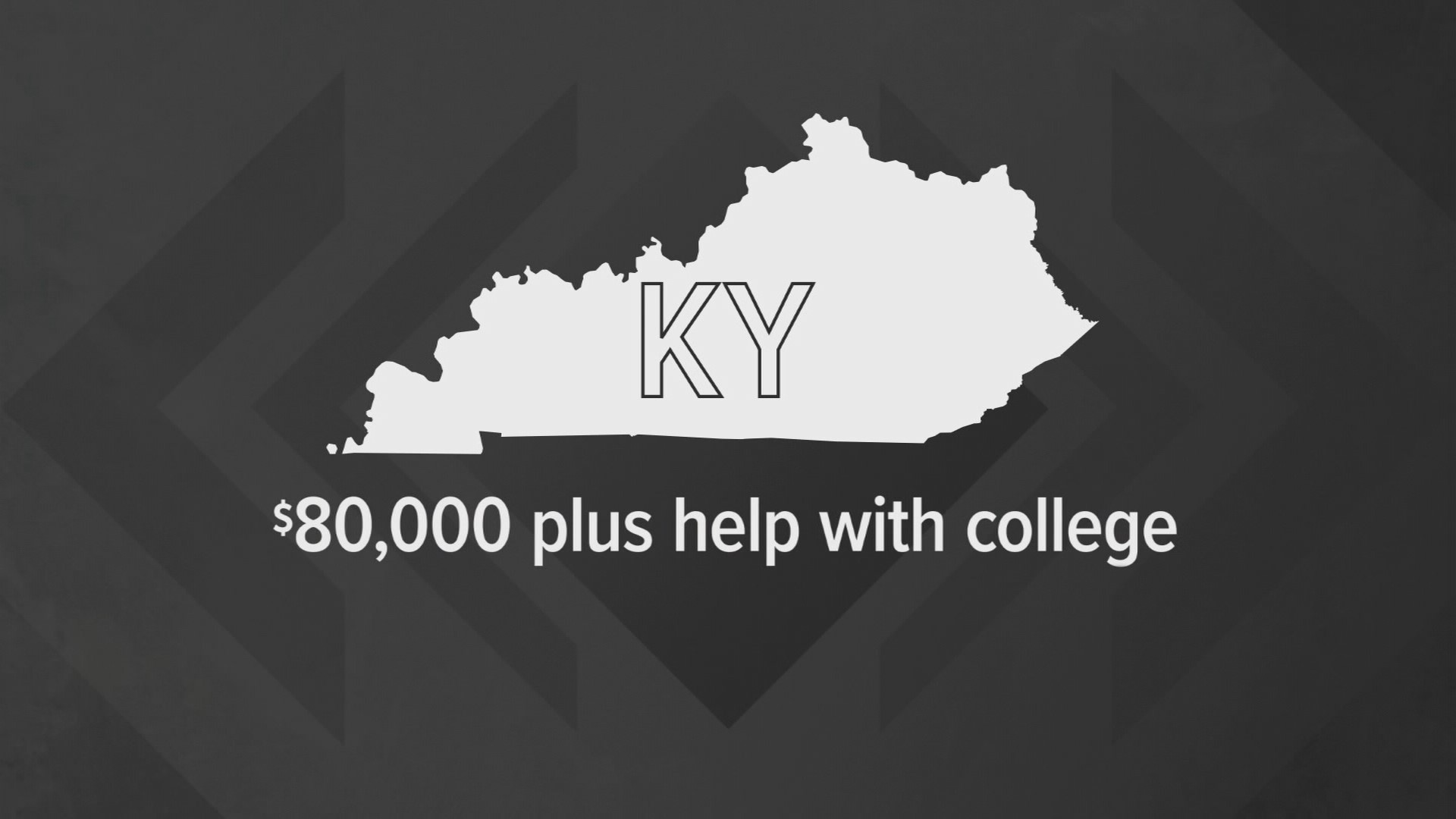LOUISVILLE, Ky. (WHAS11) - With huge flames and collapsing buildings, the dangers of firefighting are most visual on scene. But it’s the battle after the blaze that is the deadliest -- carcinogens hidden in the flames are leading to epidemic cancer rates.
Yet even when these brave men and women lose their cancer fight, the battle lives on as family members struggle to get line of duty death protections and benefits.
When officers or first responders die in the line of duty, their families are eligible for about $360,000 from the federal government. However, cancer is not recognized as a “line of duty” death for firefighters at the federal level.
This means they don’t qualify for those benefits.
“You know, you can be really passionate about something until it’s time to pay,” Joe Hurt, President of the Jeffersonville Chapter of the International Association of Firefighters said. “Everybody wants proof, right? And that’s what we’re working on as the IAFF. We’re trying to show you, look this is the real stuff. It’s killing us.”
There have been some victories state-by-state in recent years for firefighters and their families, but that doesn’t mean their fight is over.
In Indiana, cancer is considered a line of duty death and families are entitled to $150,000 and spouses and children can get free tuition at state schools. However, the burden is on the firefighters to prove that their cancer was caused by the job. They’re expected to document the specific fires they blame for their disease, which can be a tall order over the course of a long career.
“I’ve been documenting my runs, but I don’t know – has anyone been coming in behind me to document exactly what was burning and what was off-gassing from that product and what cancer does that cause?” Hurt said. “We’re kind of uncharted territory right now.”
In Kentucky, families get $80,000 from the state, plus help with college. Right now, though, only 12 types of cancer are eligible for a line of duty death designation.
There are other restrictions as well. For example, if a firefighter uses any tobacco products within 10 years of diagnosis, they’re disqualified from line of duty benefits.
“Now it doesn’t matter how many fires you’ve fought, if you fought them next to two other members who catch the same cancer, it doesn’t matter,” Buechel Fire Sergeant Brandon Mellick said. “You’re still not eligible for those benefits.”
Even with these current struggles, there is still an improvement from past years, when cancer wasn’t even on the radar for firefighters.
But they’re still pushing forward to keep the movement going.
“It’s important because firefighters are dying. We know that’s happening. We know for sure we’re getting cancer…and, we are public workers. So, it takes politics oftentimes to help us. So that’s why it’s important,” Joe Hurt said.
There has been some ground gained for firefighters and their families. This year, President Trump signed into law a new national database to begin tracking firefighter deaths across the nation. That was the result of a push in part from first responders right here in Kentuckiana.
The hope is that a clearer picture of this threat will lead to better protections in federal law.
For more on the #BattleAfterTheBlaze, click here.
►Contact reporter Rob Harris at rjharris@whas11.com. Follow him on Twitter (@robharristv) and Facebook.



